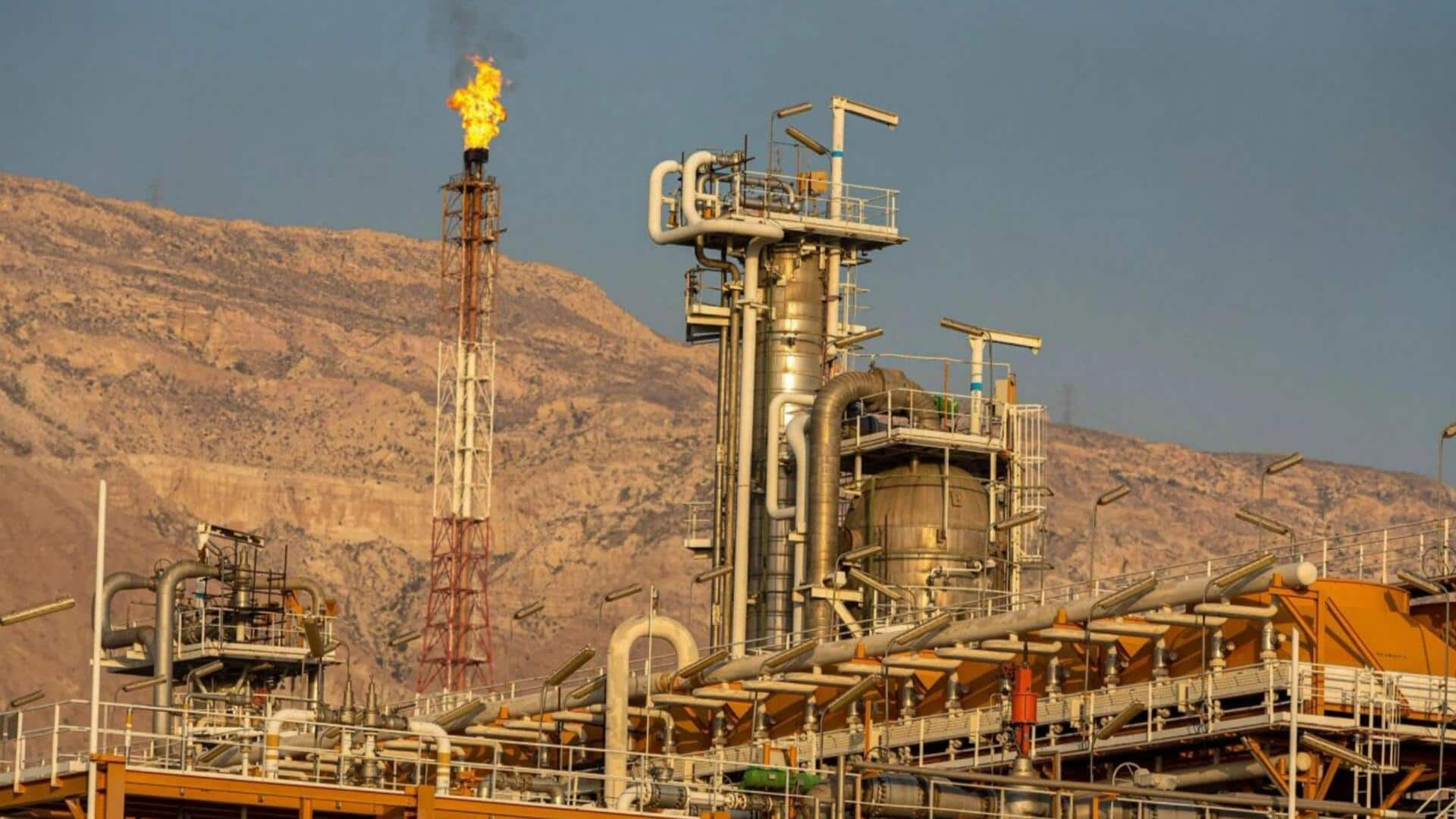
Iran halts world's largest gas field after Israeli drone strike
What's the story
Iran has suspended production at the South Pars gas field, the world's largest, after an Israeli drone strike caused a fire at one of its key processing units. The incident, which halted 12 million cubic meters of gas output per day, is a major escalation in the ongoing conflict between Israel and Iran. This was reportedly Israel's first strike on Iran's oil and gas sector. Here's why it matters.
Key details
South Pars gas field and its significance
The South Pars gas field, located offshore in Iran's Bushehr Province, is the world's largest natural gas reserve. Iran shares it with Qatar, which calls its portion the North Field. The field accounts for nearly two-thirds (around 66%) of Iran's domestic gas production, essential for electricity and heating. It also plays a crucial role in petrochemical production.
Escalation
Shift in Israel-Iran dynamics
The strike on South Pars marks a major escalation in the conflict, as Iran could retaliate by targeting Israel's oil and gas infrastructure. "The strike on South Pars was reckless. The attack threatens global energy security," a US official told Reuters. So far, Israeli strikes have focused on Iran's military and nuclear assets, but targeting energy infrastructure like South Pars signals a shift to economic warfare.
Impact
Implications for global energy markets
The South Pars field is shared with Qatar, a major global liquefied natural gas (LNG) supplier. An escalation in this region raises fears of attacks on other critical chokepoints like Kharg Island and the Strait of Hormuz. "This is a warning shot that Israel is willing to hit Iranian energy infrastructure if Israeli civilians are targeted," Richard Bronze, head of geopolitics at Energy Aspects, told The New York Times.
Crisis
Iran already facing severe energy crisis
The strike comes as Iran faces one of its worst energy crises in decades. Gas shortages have led to frequent blackouts, costing the economy around $250 million a day, according to the Iran Chamber of Commerce. The government has had to cut power to homes and factories even before the Israeli strikes. Sanctions and outdated infrastructure have made it difficult for Iran to meet demand.
Worldwide impact
Global energy markets on brink of crisis
Although South Pars mostly serves Iran's domestic needs, its location in the Persian Gulf, a key global energy route, makes it critical. The Israeli strike shows that energy assets are now on the battlefield, raising risks for oil markets. Any escalation could lead to a spike in fuel prices and trigger inflation, especially in energy-dependent regions like Europe and Asia.